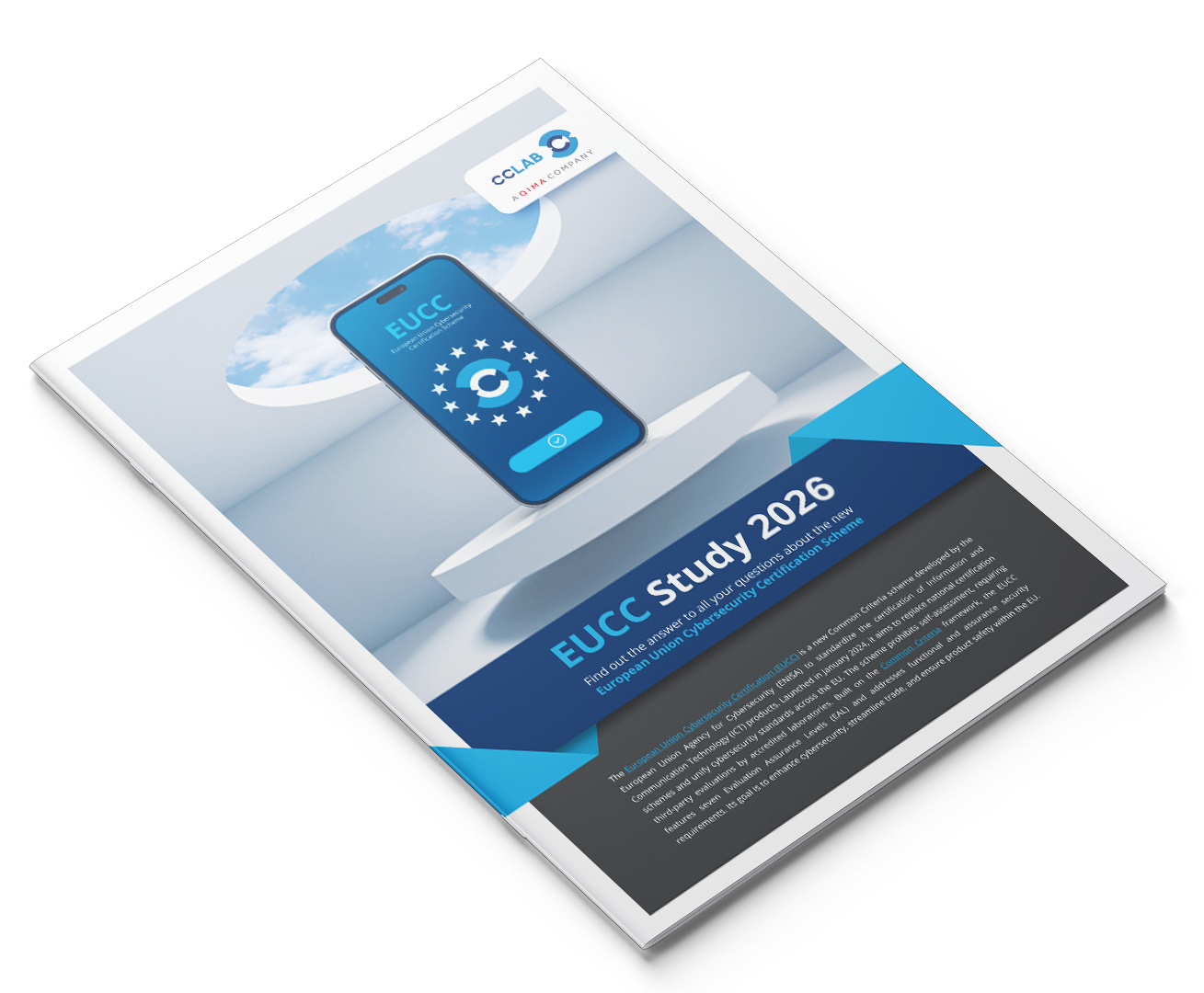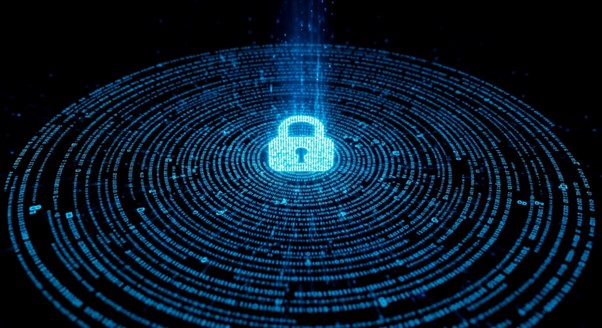
The Future of EUCC Certification for ESG Software
8
min reading time
The Growing Importance of Cybersecurity in ESG Software
The definition of ESG software is a digital tool that helps organizations collect, manage, and report data related to Environmental, Social, and Governance (ESG) factors. ESG software is pivotal in modern sustainability strategy, allowing companies to track carbon emissions, measure DEI (Diversity, Equity & Inclusion) progress, and monitor governance practices across global operations. As digital transformation continues, these systems now store vast amounts of sensitive and often confidential data.
Such data includes metrics on environmental impact, internal audits of labor practices, and board-level governance structures. It’s no exaggeration to say this information is a goldmine for cybercriminals. ESG platforms become vulnerable to unauthorized access, data manipulation, or theft if left unprotected, compromising internal operations and public-facing ESG disclosures.
Cybersecurity threats in the EU are on the rise. These attacks targeting ESG software could derail reporting accuracy and lead to financial penalties, loss of investor confidence, or legal action.
As regulations such as the EU Corporate Sustainability Reporting Directive (CSRD) take hold, organizations must ensure that ESG data is accurate and secure. Cybersecurity and ESG compliance are now inextricably linked, making robust protective measures a necessity rather than an option.
The Role of EUCC Certification in Enhancing ESG Objectives
The EU Cybersecurity Certification Framework (EUCC) provides a comprehensive mechanism for certifying ICT products—such as ESG software—against recognized European cybersecurity standards. Governed by the EU Cybersecurity Act, EUCC offers different levels of assurance depending on the risk and complexity of the product being certified.
For ESG software, EUCC certification validates that the system can withstand basic to moderate cyber threats, based on evaluation assurance levels (EALs). The most common level applied to ESG software today is EAL2, a “Substantial” assurance level that includes structured testing and detailed review of the source code, system architecture, and vulnerability exposure. This evaluation process ensures that systems tasked with managing environmental, social, and governance data are not only functional but also defensible against common attack vectors.
A key component of this process is the AVA_VAN.2 vulnerability assessment, which tests whether the software can resist attackers with basic skills and resources. In Hungary, the SZTFH (Supervisory Authority for Regulated Activities) legally mandates this requirement, which aligns with the EU Commission Implementing Regulation 2024/482.
Passing the AVA_VAN.2 tests prove the software is resilient enough for secure ESG data handling, reinforcing the integrity of sustainability reporting frameworks that depend on accurate, untampered data.
As ESG software becomes central to financial reporting, sustainability planning, and regulatory audits, its security posture directly affects corporate accountability. For example, a data breach involving carbon emissions records or social compliance disclosures could result in financial penalties and reputational damage that undermines stakeholder trust. Therefore, EUCC certification is not just a technical credential—it’s a strategic safeguard.
Moreover, EUCC-certified software gains a significant competitive edge. It signals stakeholders that the product has been independently validated and meets strict cybersecurity benchmarks.
This validation is invaluable for ESG reporting, where transparency and trust are non-negotiable. Organizations that deploy certified ESG solutions can more confidently engage in sustainability-linked financing, meet investor demands for risk disclosure, and demonstrate a proactive stance on cyber resilience.

Compliance, credibility, and risk mitigation
In the face of mounting regulations, organizations can no longer afford to rely on self-attested cybersecurity claims. EUCC certification acts as a formal compliance tool, aligning ESG software with GDPR and data protection laws while fulfilling upcoming mandates like CSRD (Corporate Sustainability Reporting Directive) and the European Digital Operational Resilience Act (DORA). These regulations increasingly require not just the collection and publication of ESG data, but also assurances that such data is trustworthy, traceable, and protected from manipulation or loss.
This compliance reduces exposure to legal and financial penalties and enhances market credibility. Investors and partners are more likely to trust organizations that demonstrate cybersecurity maturity, especially when dealing with sensitive ESG data in risk models, financing decisions, and public disclosures. Certification can also support procurement processes, as many companies and governments are beginning to require that software vendors show proof of meeting cybersecurity standards.
Beyond its legal and reputational benefits, EUCC also plays a critical role in risk reduction. Annual reviews and vulnerability assessments uncover and remediate flaws before attackers can exploit them.
This process ensures a continuously improving security posture that evolves with the threat landscape. Organizations using EUCC-certified ESG software are therefore better positioned to detect anomalies, respond to threats, and recover from incidents quickly—capabilities that are especially important as ESG frameworks become digital-first and more interconnected across supply chains.
In the long term, EUCC certification helps organizations build cyber-resilient ESG systems that are compliant and adaptable. By embedding security into the lifecycle of ESG software, companies future-proof their compliance strategies while reinforcing the credibility of their sustainability commitments.

Why do EAL2 and AVA_VAN.2 matter for ESG platforms?
To fully appreciate the importance of EUCC, it’s worth understanding the structure of the Common Criteria assurance levels—these range from EAL1 to EAL7, with higher levels demanding more rigorous evaluation.
EAL2, the standard baseline for ESG software, focuses on structural testing. It requires examination of the software’s internal components, including source code and system configuration, to ensure proper implementation of security features. Compared to EAL1, which focuses on functional testing alone, EAL2 offers a more comprehensive security review.
The accompanying AVA_VAN.2 test assesses how well the system can defend against low-skill attackers. This includes testing for known vulnerabilities, weak access controls, and data leakage risks. Passing this test assures customers and regulators that the ESG software is secure by design, not just by claim.
How CCLab Can Help with EUCC Certification for ESG Software
Navigating the EUCC certification process can be complex and resource-intensive. As an independent, accredited cybersecurity evaluation lab, CCLab specializes in helping ESG software vendors understand and prepare for EUCC.
From initial consultations to final certification, CCLab supports clients every step of the way. Their services begin with creating a Security Target (ST)—a detailed document that outlines the software's security features and aligns them with Common Criteria requirements. This forms the basis of the evaluation process.
Next, CCLab conducts in-depth security testing, including AVA_VAN.2 assessments and functional evaluations tailored to the product’s risk profile. By identifying weaknesses early, vendors can remediate issues before formal certification, avoiding costly delays or failures.
Moreover, CCLab offers post-certification support, including re-evaluation services and regular vulnerability scans. This ensures that ESG software remains compliant as new threats emerge and regulations evolve.

A Growing market for ESG and cybersecurity professionals
The synergy between ESG compliance and cybersecurity is already influencing education and employment. At Széchenyi István University in Hungary, a master's program in ESG strategy was launched—the first of its kind in the country. The course equips professionals with the skills to analyze sustainability data and navigate complex regulations, including cybersecurity standards.
Graduates of this program are now in high demand across industries, particularly those subject to ESG reporting requirements in 2025 and beyond. With Hungary’s regulatory framework mandating EUCC for ESG software, there’s a growing need for professionals who understand ESG and information security.
This convergence is also driving corporate training. Many ESG officers now seek certifications or academic qualifications that bridge sustainability and cybersecurity, indicating how interconnected these domains have become.
Summary
The future of ESG software is inseparable from the future of cybersecurity. As regulations harden and cyber threats grow more sophisticated, EUCC certification will serve as a foundational requirement for ESG platforms, not a bonus feature.
By obtaining EUCC certification, organizations ensure that their ESG data remains secure, reliable, and legally compliant. It enhances investor trust, reduces risk, and strengthens credibility in an increasingly competitive ESG marketplace.
Partnering with CCLab ensures this process is handled efficiently, accurately, and with expert guidance, accelerating time-to-market while meeting the highest cybersecurity standards. As ESG expectations rise, only certified, secure, and transparent software will meet the challenge.
Related downloadables
Related downloadables


Protect Your ESG Software with EUCC Certification- FREE Flyer
Protect Your ESG Software with EUCC Certification- FREE Flyer
Unlock the full potential of your ESG software—ensure security, compliance, and a competitive edge with EUCC certification!


EUCC Study - The New European Union Cybersecurity Certification Scheme
EUCC Study - The New European Union Cybersecurity Certification Scheme
Download EUCC Study 2024 for the most important and up-to-date information about the new European Union Cybersecurity Certification Scheme
Related news

How to Meet IoT Cybersecurity Standards Using the ETSI EN 303 645 Guide
This article provides a comprehensive guide to meeting consumer IoT security standards using the ETSI EN 303 645 framework. It explains why this standard has become the global baseline for compliance, serving as a critical foundation for regulations like the UK PSTI Act and the upcoming EU Cyber Resilience Act (CRA). The post breaks down the 13 essential security provisions, such as banning default passwords and securing software updates, and outlines a structured assessment path from scope definition to accredited testing. Learn how to treat security as a design constraint to avoid market delays, leverage gap analysis for early detection of vulnerabilities, and turn technical compliance into a trusted competitive edge for your smart devices.
5
min reading time

Understanding EUCC Assurance Levels: What “Substantial” and “High” Really Mean for ICT Security
This article provides a strategic guide to the new EUCC assurance levels, explaining what "Substantial" and "High" certifications actually mean for your market access. It demystifies the critical shift from simple EAL numbers to risk-based vulnerability analysis (AVA_VAN), detailing exactly which products require advanced penetration testing versus basic surveys. You will learn how to map your device to the correct assurance category, navigate the new mandatory lifecycle and patching requirements, and avoid the costly trap of over-engineering your compliance strategy.
5
min reading time

Implementing EUCC: What High-Assurance Certification Requires Beyond Traditional Common Criteria Approaches
This is a comprehensive overview of the transition to EUCC (European Common Criteria-based cybersecurity certification scheme). It effectively highlights the shift from the old, fragmented SOG-IS approach to a unified, risk-based framework under the Cybersecurity Act.
8
min reading time
